Russ joins the interview to talk about how HI-USA is more than just an ordinary hostel that provides guests a bed to sleep in for the night.
Q. Tell us about your journey into hosteling business.
Growing up in Green Bay, Wisconsin, my early interest was all about football, not travel. In college, I was drawn to economics and finance, so that’s where my early career focused.
A few years into my career, I enrolled into an international business study program at Oxford University on sabbatical. It was my first big trip overseas and I squeezed in months of backpack travel in Europe. That’s when travel and hostels made a deep impression.
I mostly stayed in hostels because of the travelers I met there — friendly, curious, and energetic. The conversations were amazing, and I found interesting travel companions along the way. My European travels were a time of fresh ideas and adventure – I loved it!When I returned home, I couldn’t let go of the experience. After volunteering with my local HI USA hostel in Washington DC, I knew I had found my passion.
I said good-bye to my economics and finance career plans and signed on as a local HI USA staff member. That was over 30 years ago, and I have been CEO since 2000.
Q. What does traveling mean to you?
For me the act of travel is about self-discovery. Parenting is another form of self-discovery, and that has been front and center for the past 20+ years. Now an “empty nester”, travel takes a front seat once more!
My travel memories are mainly about the people I meet, which I find most easily happens in hostels. My most memorable inevitably relate to cultural blunders I have made along the way.An evening in Toledo, Spain on my first big European trip stands out. I was at a pub with other hostel guests when I leaned back on put my feet on the table, having no idea that the sole of my shoes would offend a Middle Eastern travel mate. That led to an amazing conversation and insights I carry today.
Travel makes me a better person.
Q. What qualities do HI USA have that set it apart from other hostels?
We think of ourselves first as a cultural exchange organization – bringing people together to live, meet and talk with each other. Doing that well includes building design.
For example, HI New York is our largest hostel. It is strategically located in upper Manhattan and offers spaces ideal for a wide range of hostel activities – a handful of comfy common areas where guests could mingle, plus a spacious patio and backyard perfect for barbeques and musical performances.We work with a diverse pool of local volunteers to create immersive experiences for guests – leading walking tours in their favorite neighborhoods, visiting their favorite pubs, and introducing guests to their favorite insider spots throughout the city.
It all starts with our welcoming hostel staff who take on an ambassador role to make each guest feels comfortable and welcome as they are providing them a swift check-in experience.
You’ll find amazing experiences at each of our 15 hostels across the country, in cities large and small, at seasides and in parks.
Q. Tell us about the sustainability efforts at HI USA?
Sustainability has been a part of HI USA since our founding. Our early hostel publications from the 1930s featured strong “green” philosophy, highlighting “travelling under your own steam” and “leaving a place better than you found it”.
Of course, terminology and practices have evolved over the years and so has our organizational commitment. In 2017, we were one of four organizations worldwide to receive the National Geographic Leader in Sustainable Travel Award.
There is still much to celebrate. 14 out of our 15 hostels are repurposed buildings. More than 50% certify their electric usage as either from renewable or emission-free sources.
We are installing innovative shower heads in all hostels – using color as indicative to the length of the shower and display signage encouraging shorter showers.
If all guests reduce their showers by one minute while at our hostels, we’d reduce water usage by over 1 million gallons.
Of course, we also have a strong recycling program through visible bins in guest rooms and common areas. We are developing plans for our next chapter of sustainable initiatives.
Q. Let’s talk about IOU Respect program.
IOU Respect is a hostel-based cultural exchange program conceived after September 11th on the belief that hostels have a role to play in mending global divisions.
We welcomed 19 program participants in Chicago, ages 18-25, from five countries, Egypt, France, Germany, Lebanon and the USA.
The hostel served as both their home and learning center. The 10-day program was shaped by curriculum agreed to by the six countries several months before.
HI USA education staff were front and center, creating a climate of belonging, developing an engaging, neighborhood focused agenda, and enlisting a skilled dialogue session facilitator whose feet were planted in both Arabic and Western cultures.
Participants described the program as opening a new and unexpected door for self-discovery. They also mentioned the need for continued self-exploration when they returned home. Exactly the sort of insights we always hope for!
For IOU Respect, the program and the people are what makes the difference.
That’s also true for getting the best hosteling experience as an independent traveler – participate in the local volunteer-led programming. Walking tours, barbeques, musical performances, and pub visits are all a great way to meet other travelers and those conversations are what can make a hostel experience special.
Q. The most challenging aspect of running HI-USA?Far and away, 2022 was operationally our most challenging year ever. And we expect the challenges to continue for a while.
In 2020 we closed every hostel in our network until they could be re-geared. Then in Spring 2022, reopening our remaining facilities meant recruiting and training new staff, implementing new health and safety protocols, and catching up on maintenance projects. Far and away, our biggest challenge has been attracting staff.
Fortunately, part of the work was to step back and decide the sort of organization we wanted to be once we reopened. Four core values emerged: community, integrity, respect, and relationships. Those values were developed and embraced by staff and board alike, and they have helped define our actions around topics like diversity, equity and inclusion, and employee compensation.
We expect staffing shortages to continue until labor markets sort themselves out, yet we feel we are in a better position than ever to attract new talent and welcome them to an organization with mighty dreams for future.
While we revised standards, some notably remain. For example, we increased the MERV level for air filters where there is forced air ventilation or added air purification units in shared dorms; we continue to use both.We also are selectively using some disinfectants, as we reassess our cleaning and disinfecting practices and their environmental impact.
Prior we were focused on eliminating the use of disposable (single use) items like utensils, cups and plates in our guest kitchens. For the time being, we continue to offer both for guests to make their own choices.
Q. Tell us about the volunteer programs at HI-USA?
As a nonprofit, we are heavily oriented towards volunteers. We view our volunteers’ engagement with guests as a defining part of our hostel stay experience.
Our volunteers consist of a diverse group of individuals engaging in multiple ways based on their interests – tour leaders who organize outings to their favorite neighborhoods, pubs and sites; Welcome party assistants who facilitate conversations and social activities at our hostels; Information desk assistants who provide guests with directions and inside local recommendations.
Here’s how one volunteer describes the volunteering experience, “I gained a supportive and interesting community with the HI volunteers. I always look forward to interacting with the visitors as well as the volunteers. I’ve met a lot of wonderful people that have enriched my life, and hopefully vice versa.”
They also tell us that volunteering strengthens their personal and professional skill sets. The top five mentioned in our annual surveys are cultural awareness, interpersonal skills, communications skills, adaptability to new experiences, and leadership skills.
As I mentioned earlier in our interview, I started with HI USA as a volunteer, so I am a believer.
Visit www.hiusa.org/volunteer or email volunteer@hiusa.org to learn more about our volunteer program and opportunities.
Q. What can HI-USA learn from other affiliated hostels?
How to better operate our own hostels! And that extends both to hostels affiliated with HI in other countries and to those independently operated.
There’s a willingness to share ideas and challenges within travel and hospitality industry.
I find engagement in the World Youth Student and Educational Travel Confederation so beneficial (full disclosure: so much so, I am Board Chair); events like StayWYSE and the World Youth and Student Travel Conference are an opportunity to meet and exchange with others in the industry.
These conversations over the years have influenced virtually every decision we have made at HI USA.
Q. Your message to our readers and travel community?
The national dialogue following the murder of George Floyd revealed a persistent racism being suffered by Black people and other historically excluded communities. For me, it brought into focus structural and systemic racism, which are not always obvious, at least to those of us who are not its victims. With that realization, how can we make a difference?
Of course, we all have a role to play, and I believe the travel community is uniquely positioned. Our personal travels have allowed each of us the privilege of seeing the diversity of this world and its inequities, and a powerful context from which to act.
At HI USA, our staff and volunteers are trying to bring our learnings and experiences to the way we operate our hostels and treat each other. We have a monthly All-staff conversation led by our HIDEIA committee, Topics span systemic racism, trans inclusion, mental health and ableism just to name a few. But we know that impact is achieved through more than talk.
We have conducted an internal audit of how our teams feel and experience daily life at HI USA, set plans in action to ensure diverse voices in both small and large conversations, and developed the HI USA Commitment to Diversity and Inclusion. This Commitment, displayed artistically throughout our hostels, tells our guests what we expect of our ourselves, what we expect of them, and what they should expect of each other, while experiencing our hostels.
This work is never done. Our mission is deeply personal and requires an environment where all feel included, where we are celebrating diversity and learning from multiple perspectives. This is the essence of travel, new perspectives, pushing our own boundaries.For those who are seeking to make a difference, know that diversity, equity and inclusion has been centered at HI USA and we would be interested in connecting industry colleagues who have prioritized this work for both their teams and their travelers.
All photographs credit: Hostelling International USA
Biography:
Russ Hedge has been the CEO of Hostelling International USA (HI USA) since 2000. He has been in the youth travel industry for more than three decades and is a sought-after speaker whose expertise ranges from sustainability, youth travel to impact travel.
A native of Wisconsin, Hedge received his Bachelor of Arts degree in economics and political science from the University of Wisconsin at Madison, and his Master of Arts degree from the Lyndon B. Johnson School of Public Affairs at The University of Texas at Austin.







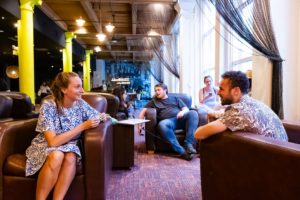

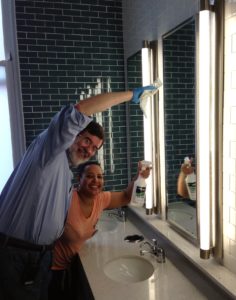
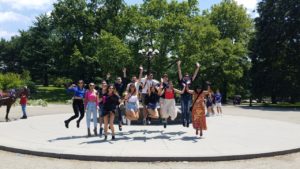

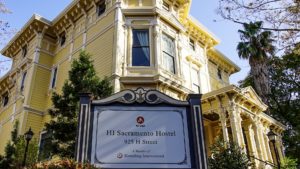
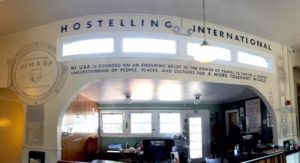




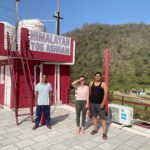

They did not open all of them! They sold a lot of assets to keep the CEO and senior staff employed while they let go hundreds of employees. Wonder what they actually did with the PPP loans they got. Staff retention was not it!
Very cool interview, Teh. Great insights into their network of hostels. One of my favorite HI hostels is in Santa Monica
~ Dave
I stayed at two of their hostels – New York and Santa Monica. Both were awesome experiences! The New York hostel is enormous and is in a prime location – The nearest subway is only a 5-minute walk away. The hostel is sparkling clean all the time, well-equipped, and stylish. I will go back for another stay
Great In-sight on hostel business. Thank you Chin Liang – love your writting.
Got screwed this Memorial day weekend and I have been an HIUSA.org customer for 22 years at the NYC location. Hi sent me an email with a 25% discount if I booked a bed before June 30th. I booked for two nights this past Memorial day weekend and I was charged more money because I used their phoney 25% promo discount. I saw it right in front of my eyes when I went to book for another two or more days for the following week. I can forgive cold showers for both days I was there and for rudeness at the front desk and for no one giving a dam that I was overcharged. The on premise so-called manager could not help correct your billing error and the two emails she gave me bounced back to me. I then wrote a snail mail letter to Marland headquarters complaining and my situation was not helped.
Well guess what? HIUSA.org has lost me as a customer of 22 years. I now look for other hostels in NYC as I cannot in good conscience subject myself to this sexual harassment of my finances. In summary I would have saved $45 by not using your phoney sav25 promo code. My bill was $192 and with the phoney discount I paid $151 or so but the bed rates were much cheaper that weekend. I just didn’t catch this phoney pricing the first time but when I went to book for the coming week. I know the CEO Russ Hodges does not care and HIUSA.org must be circling the drain to do such horrible billing frauds against a customer of 22 years. Filing a dispute with Chase Bank does not work with hotel billings so I hope you are happy as I will never spend another cent in your hostels until this overcharging of myself is corrected.